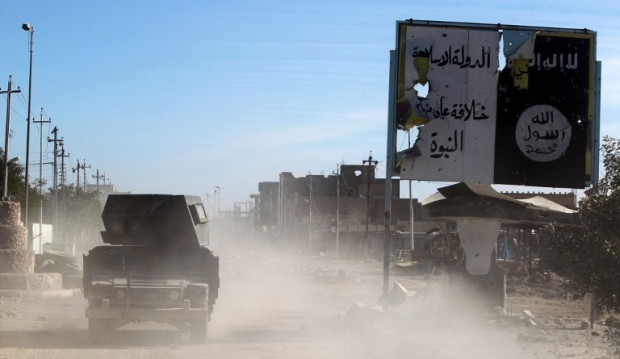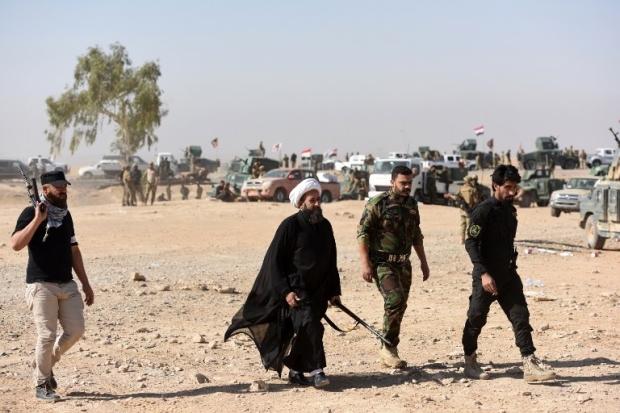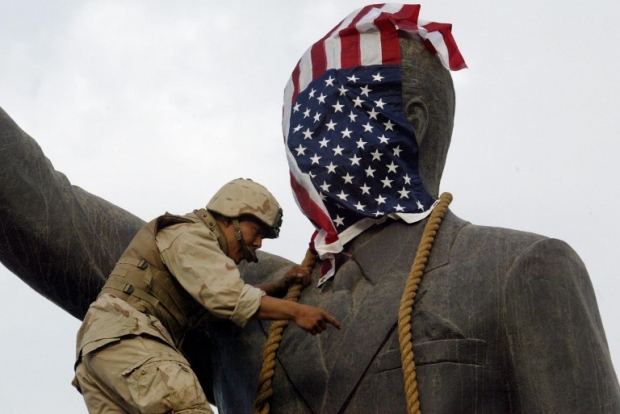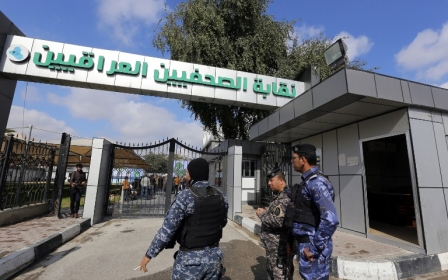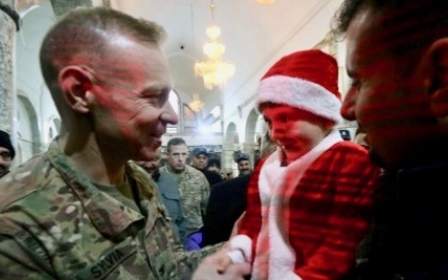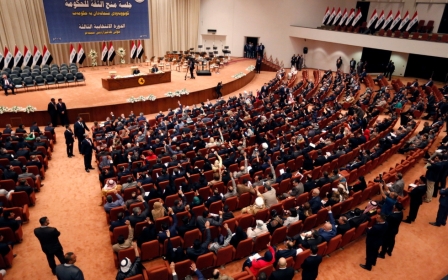Iraq's largest Sunni and Shia political blocs announce post-IS draft deal
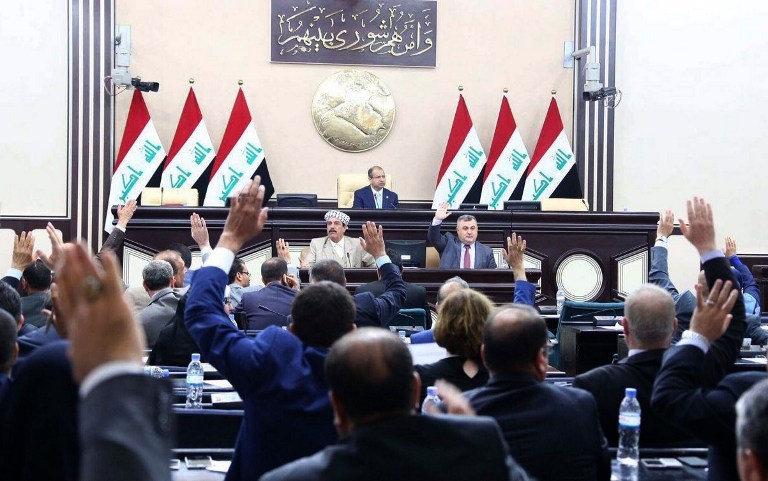
The leaders of Iraq’s two largest Sunni and Shia parliamentary coalitions announced this week that they had reached a preliminary deal for a post-Islamic State future based on compromises that overcome past mistakes.
Leaders of the two coalitions met at the house of Iraq’s parliamentary speaker on Monday, according to Matshar al-Samarrai, a Sunni Iraqi MP who is part of the Sunni Iraqi Forces Coalition (IFC).
Iraq has a sectarian power-sharing agreement where the parliamentary speakers – currently Salim al-Jabouri, who is also part of the IFC – is guaranteed to Sunni Arabs.
The prime ministry is in turn guaranteed to Shia Arabs and the presidency to Kurds.
Al-Samarrai and al-Jabouri met with Ammar al-Hakim, the head of the National Iraqi Alliance (NIA), the IFC’s Shia coalition partner in parliament.
“A quasi-agreement on a settlement was reached,” al-Samarrai told a pan-Arab news website.
Speaking to Arabi 21, the Sunni MP said he asked the NIA to “launch initiatives that will build hope among political factions. These initiatives should include the return of displaced persons to their cities, restoration of land to residents once it is taken back from Islamic State forces and release of those innocently imprisoned, as everyone admits that there are innocent people being held in prison.”
Tallha Abdulrazaq, an Iraqi security and counterterrorism expert at the University of Exeter, said he would not be surprised if the “preliminary agreement follows the same path of 'one step forward and 10 steps back'."
‘Laughable’
"I think it's frankly laughable that the politicians who are part and parcel of a political process that engenders foreign intervention and meddling are talking about building inter-sectarian equality in Iraq post-IS,” he said.
Al-Samarrai told Arabi 21 that the meeting was only the first step towards a permanent solution, with one such step being the establishment of parliamentary committees to focus on the agreed initiatives, adding that an agreement on setting them up was close.
Al-Jabouri, the parliament speaker, told Arabi 21 that the meeting was significant because this was the first time a dialogue was held to discuss Iraq’s post-IS future. He also emphasised that it was essential for displaced citizens to return home.
“Secondly, IS has already been used as an excuse to commit sectarian cleansing against the Sunni Arabs of Iraq, including documented war crimes, and that must be addressed - not only the return of IDPs to their homes.”
Crime and no punishment
The meeting comes after a year of particularly brutal sectarianism, even by Iraq’s bloody standards.
In January 2016, Human Rights Watch accused Shia militias of abducting and killing tens of Sunni civilians in central Iraq in retaliation for an IS bombing.
By the time the Iraqi state’s campaign against IS was in full swing, HRW was calling on the Iraqi government to prevent certain Shia militias from taking part in June’s operation to retake Mosul – citing the likelihood of mass human rights breaches.
By October, Amnesty International had gathered enough testimony to release a report titled “Punished for Daesh’s crimes: Displaced Iraqis abused by militias and government forces.”
Amnesty accused pro-government Shia militias of committing war crimes by “by torturing, arbitrarily detaining, forcibly disappearing and extrajudicially executing thousands of civilians”.
History vs hope
It was in this context that a number of senior leaders of both coalitions attended the meeting, and agreed on the importance of correcting past mistakes.
According to al-Jabouri, they agreed on the importance of abandoning a winner-takes-all mentality, and that compromise and cooperation were necessary moving forward in their attempt to build a strong state in the wake of the recent IS insurgency and a decade of sectarian strife.
Abdulrazaq, however, pointed to the history of the post-invasion Iraqi political class to justify his lack of optimism.
“This is not the first time these politicians have cut deals and set up committees only for the same nepotism, corruption and foreign meddling to derail everything,” he said.
Al-Samarrai was more hopeful – but still tempered by a weary caution.
“They [NIA] must implement what was included in the political settlement to rebuild trust and a state of institutions for people to be able to live securely,” he said.
“But if there are only promises and empty talk without action on the ground, the settlement will be just like those that preceded it,” he said.
He continued: “The (Iraqi Forces) Coalition sees a general lack of seriousness in achieving reconciliation, especially as much money was spent on these [previous] initiatives and we came out with nothing.
“We have not lost hope, but we are waiting to see.”
New MEE newsletter: Jerusalem Dispatch
Sign up to get the latest insights and analysis on Israel-Palestine, alongside Turkey Unpacked and other MEE newsletters
Middle East Eye delivers independent and unrivalled coverage and analysis of the Middle East, North Africa and beyond. To learn more about republishing this content and the associated fees, please fill out this form. More about MEE can be found here.



